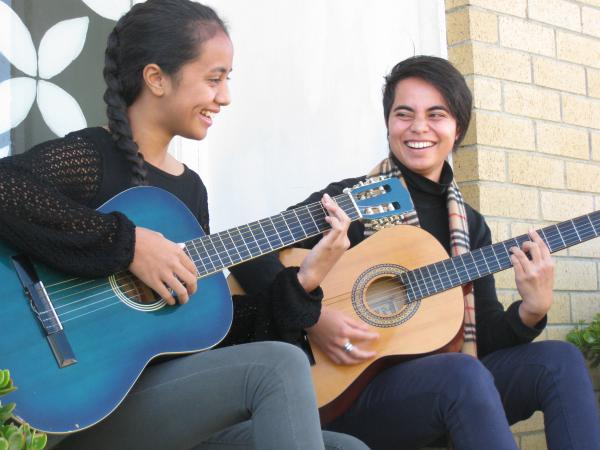Young People Tackle Discrimination Through Art

Young people more likely to be discriminated against
Last year, 10.7% of young people aged 15-24 in NZ experienced a mood or anxiety disorder – about 83,000 in total. These figures only include those diagnosed with a mental illness, so it’s likely that many more young people are affected.
Sadly, evidence is growing that young people are more likely to be discriminated against than older people who experience mental illness. Discrimination can take many shapes and forms – whether it’s being called names at school, being excluded from family gatherings, not getting interviews for jobs, and/or not being taken seriously by health professionals.
“When young people who have experienced mental illness are excluded, everyone misses out,” says Director of Strategy, Advocacy & Research for the Mental Health Foundation, Hugh Norriss. “Friends, family members, loved ones and older adults miss out on the unique perspective that a young person who has experienced hardship can bring”, says Hugh.
Discrimination also has serious consequences for young people themselves. Many young people who are experiencing distress don’t seek help due to fears of ridicule or abuse. They can also internalise others’ negative views about mental illness, resulting in low self-esteem that can further exacerbate distress.
POD: Young people leading the change
So what can be done to make mental illness discrimination a thing of the past? “Young people are best placed to tackle social exclusion from their peers and others. Young people listen to their peers, and they have the creativity to know what will make people sit up and take notice”, says Hugh.
That’s why the Mental Health Foundation has launched a new project – POD (Point of Difference). POD is a new project that will give young people who have experienced mental illness a chance to develop creative ways to challenge people’s perceptions about mental illness.
“We’re looking for young people with creative flair to help lead the change we need to help create a New Zealand where everyone is accepted and included”, says Hugh.
POD is an incubator programme held over 6 months that will give young creatives the industry contacts, tools for changing people’s attitudes and behaviours, and one-on-one mentoring to help bring their vision to life. “We already have some truly exceptional Kiwis lined up who are excited to share their expertise with young people who want to create a better future”. POD is one of the 16 community projects funded by Like Minds, Like Mine to end mental illness discrimination in Aotearoa.
What projects qualify for POD?
“There’s no limit on the creative projects that we’re looking for”, says Hugh. “POD projects might be anything from making a video, staging a play, creating an art exhibition, to a social media campaign to challenge mental health myths.”
One New Zealander who knows all about using art to challenge mental illness discrimination is Sam Orchard. Sam is a New Zealand cartoonist who shares the ups, downs and in-betweens of life as a trans guy in NZ – with a dash of his experiences with depression and anxiety on the side.
When Sam first set up his comics website, Rooster Tails, he had no idea what people would have to say.
Sam says he has been both blown away and humbled by what friends, family and complete strangers have to say about his comics: “People really respond the most to comics I write about how I’m not perfect, that I’m flawed, and that my life can be quite messy.
“Sometimes I’ll be really hesitant to put something up because it’s about something that I don’t know if people will ‘get’, like constantly second-guessing whether my friends really like me. And then someone will come and say ‘ME TOO!’ and it makes me so glad I just put it out there.”
And Sam’s advice for future PODers? “Share as much or as little of yourself as you want to share. I’ve held back on some things because I wasn’t ready to have it out in the open yet. And just always remember why you did something in the first place. Sometimes if people say something mean about my comics, I’m just like: 'well, that story wasn’t for you!'”
Applications for the first POD close on 4 March, with further intakes in June 2016 and February 2017. To find out more and to apply, visit www.pod.org.nz.
